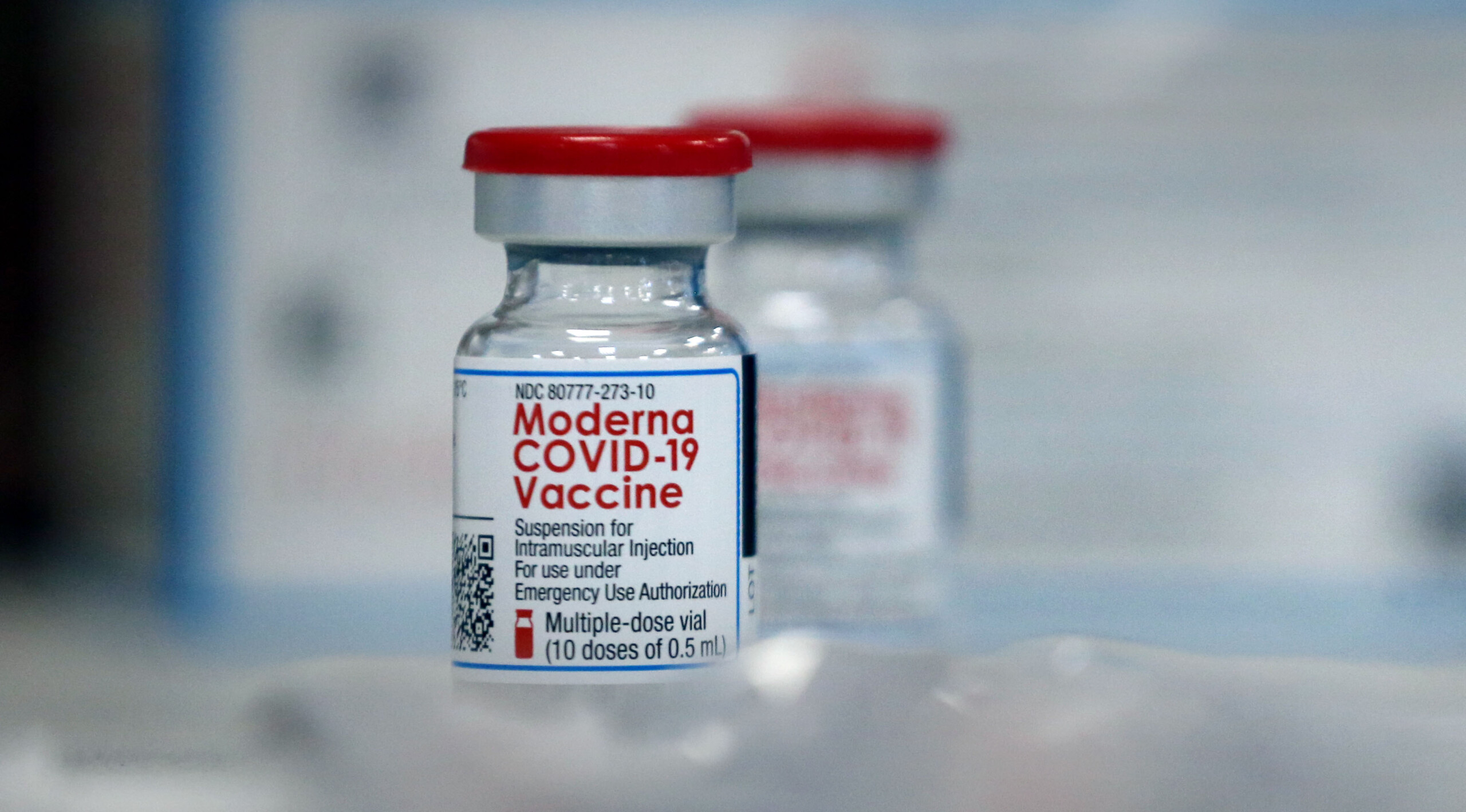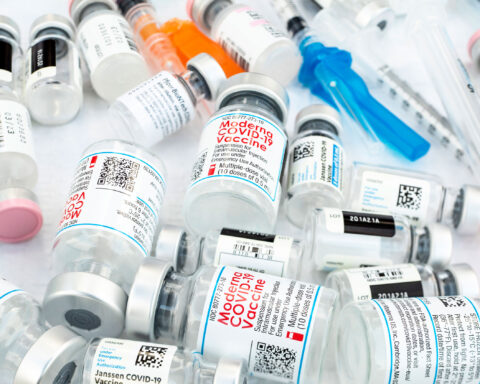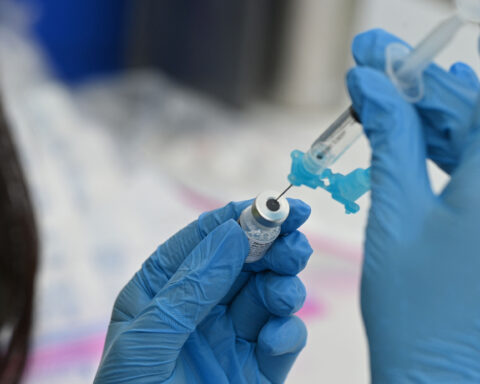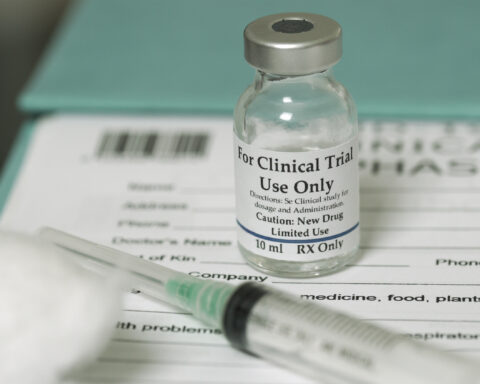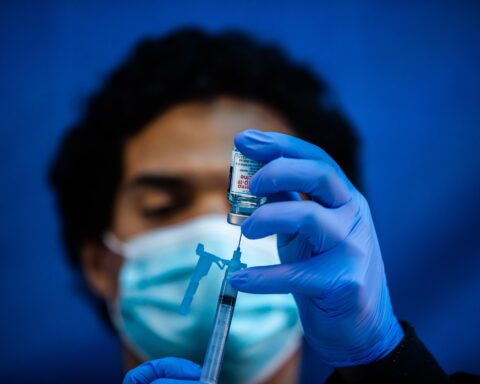Moderna fell short of profit and sales expectations for the third quarter, and the Covid vaccine maker warned that its full year shipments of the vaccine will not meet its forecasts.
Shares of Moderna plunged nearly 20% at their low point of the day Thursday and closed down 18% for the day. The share price had more than tripled so far this year before Thursday’s plunge.
The company earned $3.3 billion, on revenue of $5 billion in the quarter. But analysts surveyed by Refinitiv had forecast that income would reach $3.9 billion on revenue of $6.2 billion.
More concerning to investors is that the vaccine maker now says it expects full-year revenue of between $15 billion to $18 billion. Three months ago it had predicted revenue of $20 billion for the year.
Moderna said it is dealing with production and shipment issues that will push some of its deliveries back to 2022, especially for exports overseas. The company expects to ship between 700 million and 800 million doses of its vaccine, down from the range of 800 million to 1 billion doses it had been expecting. Moderna said it will give priority to low-income countries.
The Covid vaccine is the first major product Moderna has produced and is responsible for almost all of its business, although it is at work on other drugs.
The company’s executives admitted Moderna has been going through growing pains as it shifted from research and development to providing a product in great demand around the globe. It said that part of the reason for the reduced guidance on 2021 shipments is because of longer delivery lead times for international shipments that may shift deliveries to early 2022.
“The supply chain became more complex with increased deliveries to many countries around the world,” said CEO Stéphane Bancel, during comments to investors Thursday. “At the beginning of the year, we supplied just a few large countries. We are working through these challenges.”
Beyond the supply chain issues, some of the problems with deliveries were due to difficulties in ramping up production capacity.
“We have expanded our capacity with our manufacturing partners, which had the temporary impact on our shipments,” said Bancel. “That work is complete now and we should see a positive impact from this expansion very soon.”
Among the problems the company ran into earlier this year was finding the vials it needed to hold the vaccine, Bancel told investors.
“In Q1, it was all about making enough drug substance, and we were literally not waiting to have enough … vials,” he said. “In Q2, the challenge we had internally was all about finding vials.”
But he said the issues with vial supplies is now mostly behind it, and the problem has shifted to the difficulty of delivering the vaccines. Early shipments to the US government and governments in Europe were relatively straight forward, but the company has struggled now that it is shipping to dozens of different countries around the globe.
“We really believe we can fix those short-term supply issues,” Bancel said. “Those are what I would qualify as problems of scaling up so fast.”
The report was a sharp contrast to that of established pharmaceutical giant Pfizer, another maker of a Covid vaccine, which earlier this week reported better than expected earnings and raised its guidance.

